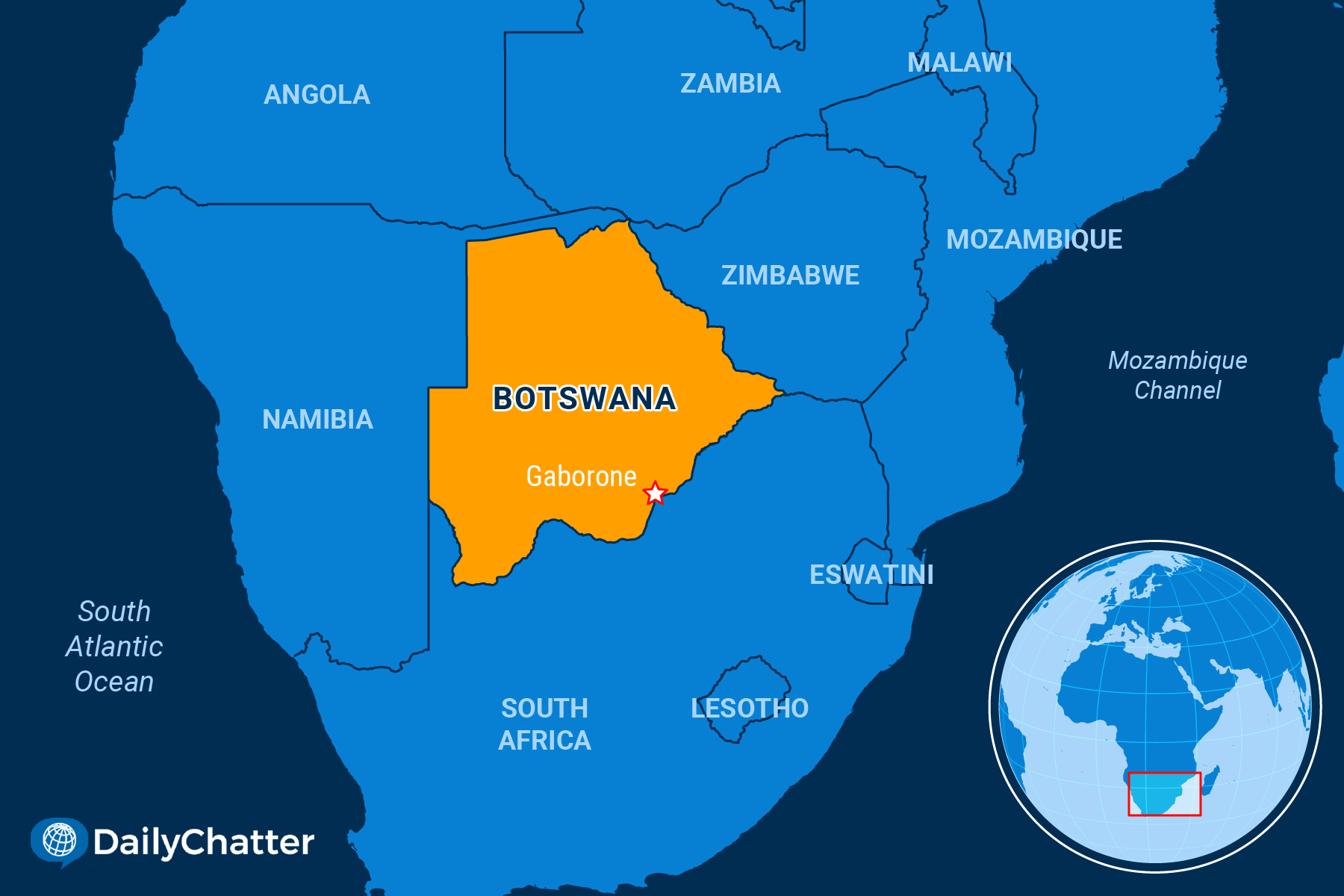Need to Know
January 20, 2023Rags to Riches
Botswana

|
Listen to Today's Edition
|
Sprawling, landlocked, relatively lightly populated Botswana enjoys a higher gross domestic product per capita than neighboring continental economic powerhouse South Africa.
As the South African newspaper the Daily Maverick explained, Botswanans earn around $9,200 on average annually, compared with South Africans who make $7,200. That achievement is all the more remarkable because Botswana only had around six miles of roads when it became independent from the United Kingdom in the mid-1960s. At the time, it was one of the poorest countries in the world; per capita GDP then was only $70 a year.
Billions in foreign energy projects, buoyed by high energy prices, as well as high prices in diamonds – the country is the second biggest diamond exporter in the world – have helped the nation prosper, Bloomberg wrote. A successful campaign against HIV has also boosted the country’s economy and attractiveness to foreign capital, according to Agence France-Presse.
President Mokgweetsi Masisi also managed to control the spread of Covid-19 during the pandemic, executed a well-run vaccination campaign, and managed recent chaotic global economic conditions well, wrote the Brookings Institution. Prince Harry even recently had a shoutout to the country.
Not everything in the country is wine and roses, though.
Botswanan authorities have issued an arrest warrant for former President Ian Khama on charges of illegally possessing firearms, the Associated Press noted. Kharma is now residing in South Africa, so he is out of the authorities’ reach. He has asked a judge to throw out the charges. But the back-and-forth shows how changes are roiling the country’s politics.
Khama’s father was Botswana’s first president, Seretse Khama, Reuters explained. Ian Khama initially supported Masisi, who succeeded him in 2018, but they fell out, forcing Khama to leave the ruling Botswana Democratic Party. Masisi now rules with a strong hand. For example, the press faces significant challenges in performing its job effectively, argued Reporters Without Borders.
And while officials have significantly curbed rhino poaching in the country’s famously vast wildlife preserves, as Voice of America reported, researchers suggested that poachers might have simply reduced the numbers of the animals and moved on.
Elephant poaching remains an issue throughout the region, too, noted the Economist. In fact, Botswana has also come under fire for seeking to sell the ivory it has accumulated from poaching, the Independent added. International authorities have prohibited such sales, which could incentivize further poaching.
Despite lingering or new issues, Botswana has made real strides in laying a political and social infrastructure to tackle its problems effectively. And for that, observers say, the sense of positive movement in the country is gratefully real.
Not already a subscriber?
If you would like to receive DailyChatter directly to your inbox each morning, subscribe below with a free two-week trial.
Support journalism that’s independent, non-partisan, and fair.
If you are a student or faculty with a valid school email, you can sign up for a FREE student subscription or faculty subscription.
Questions? Write to us at hello@dailychatter.com.

